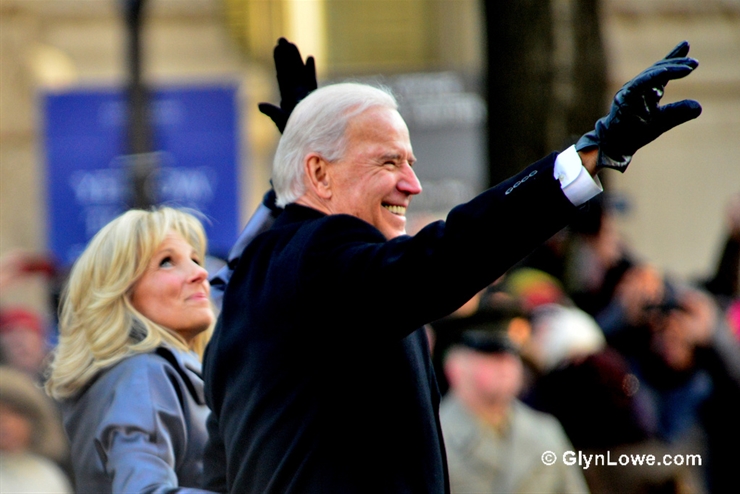If America’s contested election ends in Joe Biden’s inauguration, the world will be less safe.
Biden is an instinctive interventionist who has supported bad policies for decades. He was an outspoken advocate of Bill Clinton’s military interventions in the Balkans in the 1990s, and in the early 2000s he supported both the War in Afghanistan and the Iraq War. As vice president he was part of the team that aided and abetted jihadi violence in Syria and Libya. Candidate Biden surrounded himself with prominent liberal interventionists, including Antony Blinken, Jeffrey Prescott, R. Nicholas Burns, Michèle Flournoy, Stephanie O’Sullivan, and Samantha Power, among others.
Of particular concern is Biden’s pledge to “make it clear to our adversaries the days of cozying up to dictators are over.” His antipathy to Russia and to Vladimir Putin personally is well known. “I’m looking into your eyes, and I don’t think you have a soul,” Biden famously recalled telling Putin during a 2011 meeting in the Kremlin.
In his last major speech before leaving office in January 2017, Biden described Russia as the biggest threat to the international liberal order and said Washington must work with Europe to stand up to Putin. Almost four years later—just one week before the election—Biden used virtually the same language: “I think the biggest threat to America right now in terms of breaking up our security and our alliances is Russia.”
Biden has announced several specific initiatives which are causing alarm in Moscow. His stated commitment to return “promoting democracy” to the forefront of U.S. foreign policy may herald fresh regime-change operations in Russia’s backyard, with Belarus an obvious candidate. Any attempt to rekindle unrest in the streets of Minsk would be seen by Moscow as an intolerable challenge. From Russia’s point of view, color-coded revolutions have brought chronic instability while benefiting corrupt local oligarchies. Some observers in Moscow believe Biden may tighten existing sanctions by applying them to dozens of senior individuals in Russia’s government and business community.
No less destabilizing is Biden’s support for NATO’s eastward expansion and his pledge to supply Ukraine with lethal weaponry, which would likely reignite the conflict in the Donbass. If NATO membership for Ukraine and Georgia is back on the agenda, and with it the possibility of a radically tightened buffer around Russia’s borders, Moscow’s response will likely include renewed reliance on nuclear deterrence.
This would be a particularly ominous development in the absence of progress toward a new strategic arms control treaty. If faced with the prospect of U.S. bases on Russia’s vulnerable southern flank, Putin could also seek to enhance Russia’s security cooperation with China and possibly even Turkey, whose ties to NATO have been growing increasingly tentative.
If Biden’s “restorationists” attempt to expand their influence to Russia’s border nations and try to place a firm check on China’s regional ambitions at the same time, the world will enter a period of instability not seen since the final years of the Cold War. In recent years, Russian foreign policy has been notably defensive, focused primarily on maintaining and increasing external security and preserving domestic stability. This may change if its elites conclude that U.S. policies pose an existential threat and that Washington’s belligerence is unrelated to Russia’s actual behavior.
Most foreign challenges facing America in 2021 will be of America’s own making. It is ironic that none of the policies proposed by Biden and his team have the slightest potential to make the United States more secure. Extending security commitments to new NATO members would be especially reckless. It would force America to assume maintenance of a host of disputed Eastern European and Caucasian frontiers that were drawn, often arbitrarily, by Communist dictators and long-dead Versailles diplomats. With NATO still in place, the eventual and inevitable adjustments will be more violent for the countries concerned, and more risky for the U.S.
If Joe Biden is sworn in on Jan. 20, America will return to its hegemonistic habit of instigating crises around the world, even though the strategy of full-spectrum dominance is fundamentally faulty. The most significant consequence may be the emergence of an overtly anti-U.S. alliance between Russia and China. To assume Putin will blink if faced with a Ukrainian escalation or the rising of NATO flags in Tbilisi and Kiev would be an act of reckless folly on par with Khrushchev’s decision to install nuclear missiles in Cuba in 1962.
The world is a dangerous place, but in the coming years America can be safe and sound if her leaders remember the warnings of George Washington and James Monroe. A Biden administration may honor those warnings less than any of its recent predecessors.
Image Credit:
above: Joe Biden and Jill Biden at 2013 Presidential Inauguration. [Glyn Lowe PhotoWorks from lisbon, Portugal, CC BY 2.0 , via Wikimedia Commons, cropped and resized]



Leave a Reply